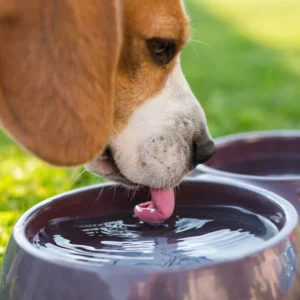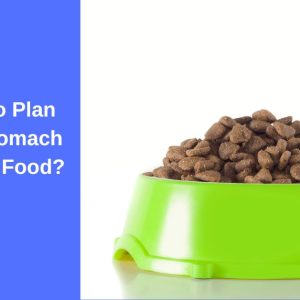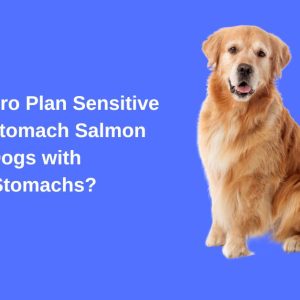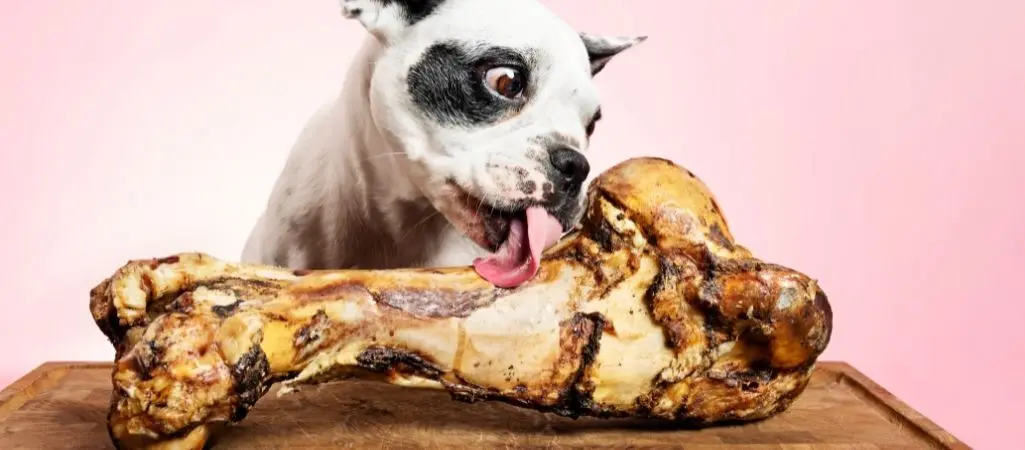
Let’s find out which human foods dogs can eat.
There are certain items that are okay for your canine to indulge in, but only if the food has been cooked. A lot of these foods can be found in your kitchen cupboard, like pieces of bread, biscuits, chips, and crackers. These ingredients should be considered treats and not meant for every meal or given out too often.
Cooked meats are okay in small amounts. It is good to avoid raw meats when giving food to your dog since it might carry salmonella or E. coli bacteria.
If you are concerned about meat not being cooked enough for your pet, then using a meat thermometer can help you determine if the meat has reached the proper temperature.
These recommendations and tips you are about to read were provided by the experts at Noa Pet World, who can guide you on the best nutrition and care for your dog.
Table of Contents
Below is the list of Human Foods that dogs can eat
Almonds:
Yes, Dogs can eat almonds. Almonds are safe for dogs to eat in small amounts. They are a good source of protein and often contain vitamin E, calcium, potassium, and riboflavin. Almonds can be found in your kitchen cupboard.
However, almond seeds or pits that have been crushed or damaged may release cyanide into the nuts. Your dog should not eat any type of almond seed, whether raw or cooked
Carrots:
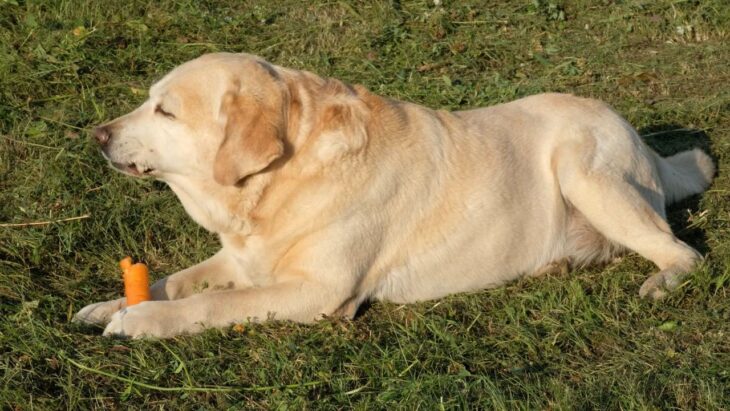
Yes, dogs can eat carrots. They are a healthy snack for them! Carrots are great for their teeth and help keep them healthy. They can be given raw or cooked.
Carrots are not poisonous to dogs.
Carrots are a great source of beta carotene, vitamin A, and fiber. But some dogs may have difficulty digesting the vegetable’s cellulose content. If your dog has trouble, you can always mix half carrots with half canned pumpkin for added fiber, or boil carrots first to soften them up before feeding them raw or cooked as a treat.
A word of warning, though: be sure your dog doesn’t get excessive amounts on an empty stomach since this might cause diarrhea due to the carrot tops, which can contain toxic doses of furanocoumarins that stimulate the liver’s production of bile acid waste material, resulting in toxin accumulation. You should also keep an eye open for any signs that your dog can’t digest the vegetables properly.
Carrots are a great source of beta carotene, vitamin A, and fiber. But some dogs may have difficulty digesting the vegetable’s cellulose content. If your dog has trouble, you can always mix half carrots with half canned pumpkin for added fiber, or boil carrots first to soften them up before feeding them raw or cooked as a treat.
A word of warning, though: be sure your dog doesn’t get excessive amounts on an empty stomach, since this might cause diarrhea due to the tops of the carrots, which can contain toxic doses of furanocoumarins that stimulate the liver’s production of bile acid waste material, resulting in toxin accumulation.
Cashews:
Generally, dogs can eat cashews. However, it may be unsafe for them if they have an allergy to nuts.
Cucumbers:
These foods should be given as a snack so as not to cause obesity in their diet.
Pumpkin:
Most dogs can eat pumpkin without a problem.
As long as the fresh whole pumpkin is pureed to a texture your dog can handle, then it should be okay. However, if you find that your dog cannot digest this food, don’t force it down his throat; instead of serving him something else that’s more appropriate for him or seek the advice of an animal healthcare professional. Remember to take into account any allergies he may already have, and if they are outdated (the brands of pumpkin will typically state on the package whether they are new or old). It also depends on his weight; many dogs cannot tolerate high levels of fiber like their owners can.
Similar post can dogs eat apples?
Cheese:
Yes, your dog can eat cheese, but…
So yes, your dog can eat cheese in small to medium quantities. But remember, they are high in fat, so you should stick with low-fat cheese like cottage cheese or mozzarella. And don’t share the delicious Himalayan Cheese dog snacks with your pup unless it’s unopened and specifically labeled for dogs!
Coconut:
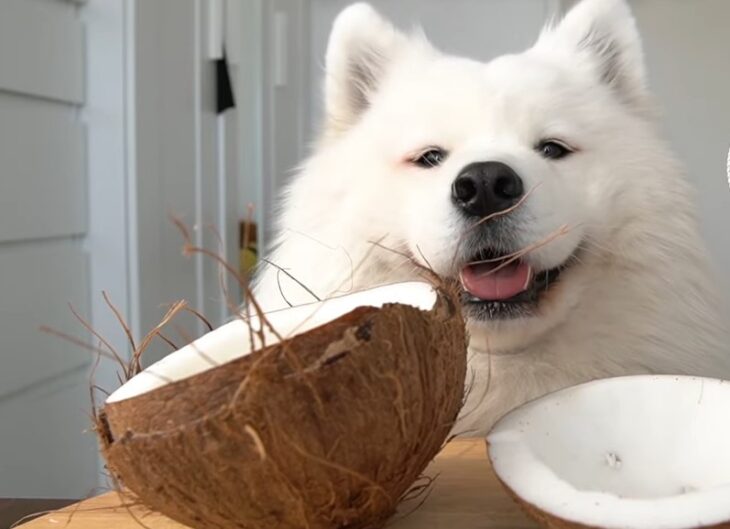
Yes, dogs can eat coconuts, but…
Coconut is not toxic to dogs, and they can enjoy the fresh fruit as a healthy snack, but be sure that it’s cut up into smaller pieces.
Coconut can be given to dogs as a healthy treat in moderate amounts. Dogs should not eat large amounts of fruit, especially because there is no nutritional value to coconut meat. Coconut water can be particularly dangerous for dogs; it has too much potassium and magnesium for their system.
However, coconut flesh (the white part) is completely safe for your dog to eat in small amounts. There is no nutritional value to coconut flesh, but it does not contain any toxic substances either. The only thing you have to be careful of is that dogs do not eat large amounts or swallow a whole lot at once because it could give them an upset stomach.
Cabbage:
Cabbage is rich in nutrients for both humans and dogs, but your dog can not consume too much cabbage because it contains a lot of indigestible fiber material, which will cause digestive problems such as bloating or constipation. In addition, if the amount eaten from cabbage from your pet exceeds more than a portion of vegetables, so will cause obesity.
Cabbage is a common food in Korea and the United States. It is often used as an ingredient for salads or stir-fried with meat, like stuffed cabbage. Other dishes include sauerkrau,t which is raw cabbage fermented by lactic acid bacteria.
Eggs:
Yes, your dog can eat eggs
Yes, it is ok for them to eat eggs. However, the egg should be boiled or scrambled and treated like other food because it can make their stomach upset. The reason why it doesn’t agree with their stomach is that they’re not used to digesting it and may not be able to take in all of its nutrition properly either.
Fish:
View this post on Instagram
Yes, your dog can eat fish You should not feed fish to your dog on a regular basis because it carries risks. Fishbones can be an issue if they are not removed, and some fish contain high levels of mercury. That being said, some frozen cooked fish is OK every once in a while as long as you trust the source. Raw or undercooked fish is more problematic for your pup.
Check out our Blog Post Can Dogs Eat Salmon?

